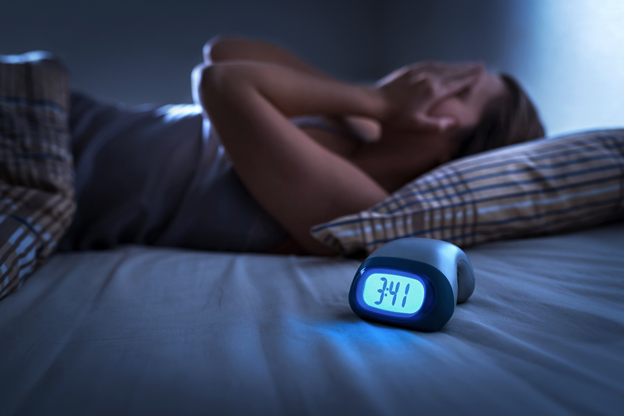
Sleep, Sleep Medicine and Stress. Part 9
This is the 9th of a nine-part series on stress and sleep. If you’ve had difficulty sleeping during the pandemic, you are not alone. Insomnia was already reaching epidemic proportions BEFORE Covid. Now it’s gotten worse. According to a survey published in Consumer Reports 28% of Americans reported having trouble falling or staying asleep since the Pandemic hit.
Want to know the secret to a healthy night’s sleep?
For me, the bottom line of this entire 9- part series boils down to whether you believe in taking a mind/body approach to your medical care. This unfortunately, is a branch of medicine that your average doctor doesn’t know much about. Remember primary care physicians specialize in treating the body. They don’t really have the time or the training to delve into other subtle issues that might also be affecting your health. And as such, they specialize in prescribing simple solutions (usually a pill) to a whole range of health problems, some of which, like insomnia, don’t always respond well to a pharmaceutical approach.
I spoke to a friend last week, whose doctor said he had very high blood pressure and needed to go on medication right away. I asked him: Have you ever seen this doctor before? No, he said. Did the doctor take your blood pressure right at the beginning of the appointment? Yes. Did he take it a second time, later on in the checkup? No. These answers all indicate that this doctor was choosing to ignore a potential mind/body problem that’s so common it has a name: “White-coat hypertension.”
Blood pressure can shoot up from the fear alone that many patients have about just getting their blood pressure taken in a doctor’s office. I know when a nurse or doctor starts affixing a blood pressure cuff around my arm, it makes me anxious. (And that is going to raise my blood pressure!) Luckily, I have a doctor who understands this mind/body connection. When he took my blood pressure and it was high during my last annual check-up, he calmly said, we’ll take it again at the end of the appointment, and when he did, it was considerably lower.
Before my next check-up, he encouraged me to take up meditation, eat a healthy diet, lose weight AND come to the appointment early and meditate for a few minutes in the waiting room before having my blood pressure taken. When he took it this next time, it was within the normal range. Most doctors just assume that you are going to want the simplest solution to your medical issue, whether that’s insomnia or some other mind/body issue like migraine headaches, allergies or hypertension. And that usually involves a giving you a prescription.
So when you have trouble going to sleep tonight or wake up in the middle of the night: Before taking that pill (which your doctor was all too happy to prescribe) consider ALL your options for dealing with this problem yourself:* Is caffeine keeping you awake? Try limiting your caffeine intake. Is lack of exercise keeping you awake? Try going for a walk at lunch every day. Is acid reflux keeping you awake? Try to limit the consumption of spicy, acidic or high fat foods during the day and try not to eat anything just before bed.
And of course, don’t forget to ask yourself: Is stress keeping me awake?
If it is stress, everything you do to reduce it including exercise, yoga, meditation, eating a healthy diet, reducing your caffeine intake, and taking a shower or bath before bed can radically reduce your dependency on taking that pill to fall asleep at night. Remember, don’t worry about one or even two bad nights in a row. Your body will surely make up for it if you don’t freak out by exaggerating the consequences of losing sleep.
And finally consider meditation as your go-to method for “self-regulating” your nervous system. You can use it when you get into bed and you can use it when you have trouble going back to sleep in the middle of the night.
Here’s my 1 to 100 breath awareness meditation countdown that can help you fall asleep. Count 1 on the inbreath 2 on the out breath, 3 on the next in breath, 4 on the next out breath and so on until you reach one hundred. Just breathe normally but every tenth breath is a deep breath. Be sure to watch the gap between your out breath and the next in breath. You will often fall asleep long before you get to one hundred. But if you don’t, you can always start over again.
Thank you for reading this 9-part series.
*If you do suffer from insomnia, you should absolutely see your doctor to rule out other physical causes like restless leg syndrome or sleep apnea. 50% of all insomnia is caused by stress, so once you rule out these other causes, and determine that, in all likelihood the cause is stress, then the decision as to whether you want to take insomnia medication, will be up to you. Tell your doctor that you want to try an alternative solution and see what he or she says.





James Porter
Author